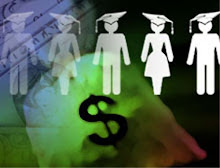This blog project has brought a unique perspective to the thinking and writing process. It has allowed me to not only research my own topic, but to form opinions of other issues dealing with the election by reviewing my peer's blogs. For example, I learned about health care from Kelli, taxes from Robert, energy from Tommy, immigration from Emily, and many others issues and blogs that I simply haven't named. I really enjoyed being able to learn more about the election because it helps me make educated decisions on who would be the best president for both America as well as for my family. Blogs are a great way to supply information and present your opinion on matters. I really like that instead of writing a works cited page with in-text citations, I can simply insert a link that will take the reader straight to the web site that the source was found on. I also enjoy being able to write and receive comments from my class mates on my own time rather than in the classroom. This allows me to better organize my thoughts and put together a better post. I think this project disproves
Nicholas Carr's theory that the internet inhibits our deep thinking and reading patterns. The blogs had to be carefully read and analyzed to develop ideas and opinions and have caused me to really think about and debate the dilemmas being discussed.
Don't get me wrong, blogs are not perfect. Many sources that seem perfectly
creditable are often not and sometimes I found that there wasn't as much talk about student aid as there might have been in the past so updated information and articles became harder to find as the project progressed. I do agree with Carr that the internet does offer many distractions. The other day, I was discussing with my friend how I was supposed to be doing homework but I got distracted by Facebook and she mentioned that "Facebook is the downfall of all college students". I thought this was funny because it is so true, all of my friends agree that Facebook is very distracting when it comes to doing homework and blogs allow instant access to such distractions.
As far as the election is concerned, this blog really helped to sway my vote. Before beginning my research, I was undecided on who to vote for president, but leaning towards
McCain simply because most of my
friends were voting for him and they had the greatest influence over my decision. When I actually began researching, I found that I agree with many of
Obamas plans more than I agree with
McCain's and when I voted early on Tuesday, I decided to cast my ballot for
Obama. Although both candidates have similar views on education and want to improve it, Obama, who was able to recieve an education though scholarships,
is the more ardent supporter of student aid and mending the "No Child Left Behind Act".
Through this blog, I have also been able to develop my thoughts on not only higher education, but lower education too. In my first post, I wrote about merit-based student aid versus need-based aid. I believed need-based was important since it allows for more diversity in colleges but after thinking about it, I also see that the need for need-based stems from lower-level education and family background. In order to help students have equal opportunities, I believe that programs such as
charter schools should be put into effect by the government. These schools would
help low-income and minority students learn skills, which are to middle and upper-class children by their parents, that are important for both school and the real world and will hopefully help under privileged kids to operate on the level as their upper and middle class peers. Everyone is created differently and some people are smarter than others, but some are also just as smart but have less privileges. It isn't fair that some kids never get to go to college because they weren't taught basic skills such as manners and socialization skills. My hope is that some day charter schools and other organizations will help all children to have the same opportunities that were given to me by my parents.
